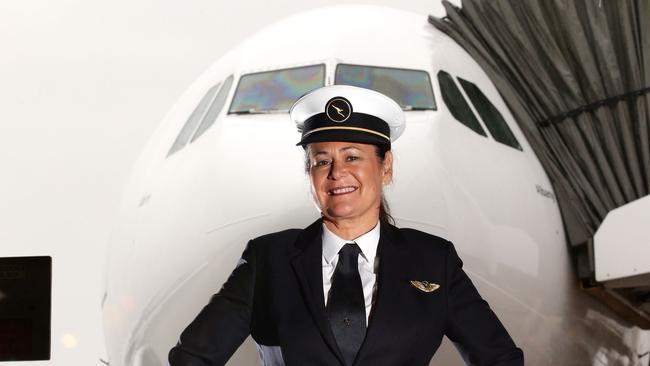'If women were meant to fly, the sky would be pink'
This is what Australia's top female pilot was told while rising up the ranks. Now, she's calling for greater investment to get more women into senior flying jobs.

Australia's top female pilot has slammed airline workplace culture for favouring male staff and shares the sexist comments she hears at work.
Urgent systemic change is needed to fix the toxic workplace culture engulfing female airline workers, the chief of Australia’s peak piloting body says, following allegations of sexual harassment and gender discrimination amongst Qantas’ senior staff.
Louise Pole, the first female president of the Australian Federation of Air Pilots, who was once told by a male colleague she was not “big enough” to fly a plane, told The Oz discrimination and harassment spans generations of airline staff and must be resolved immediately.
“(The discrimination) starts with comments that are made insinuating a woman isn’t able to do the job when it’s well known that women are equally capable of being pilots,” she said.
Some women "are even told by their male colleagues that they’re only there because they’re female.”
Reflecting on her own career as a pilot, Pole, a QantasLink captain, said: “I’ve had all sorts of things said to me, ranging from “You’re not big enough to fly the aeroplane” to “If women were meant to fly the sky would be pink.”
“I've also had passengers say "If I had known a woman was flying, I would have gotten off the plane.””
Pole’s comments follow revelations by The Oz that Qantas’ face of gender equality, Davida Forshaw, has filed a sexual harassment complaint against the airline in the Federal Court.

Forshaw claimed she received a poor performance report after she rejected sexual advances from an airline captain, was instructed to get coffee for her male counterparts while participating in an engineering briefing, and was told she “would do a lot better” if she dyed her hair blonde and wore a push up bra.
Globally only 5% of pilots are women, according to the International Society of Women Airline Pilots. A tiny 1.42% of all captains are female.
Australia has one of the lower participation rates of female pilots in the world, sitting at just 7.5%. India’s participation rate, the highest in the world, is 12.4%.
Along with being the president of the AFAP, Pole is also the founding Convenor of the AFAP Women’s Network which consists of almost 500 women pilots and students/cadets. While gender discrimination and disparity amongst airline workers “wouldn't be resolved overnight”, she said it could be reversed with time if immediate action is taken.
“It's really common for a little boy to be exposed to the idea of becoming a pilot, but girls are not encouraged or even suggested the idea to become a pilot,” Pole said.
“We need to get the next generation thinking about being a pilot as a career, and being given the opportunity to skill themselves in the right direction. That does involve getting them into STEM subjects, and driving young women in the direction that boys get driven in.”
Pole said the work environment amongst pilots must also change, and companies must accept that the workplace is “now based for men and women.”
“The workplace for a pilot has been very set up for men and lifestyles of men, not women,” she said. ”The numbers of female pilots may be increased, but we need to have more female seniors to help women in junior positions to access help and advice when needed.”
Pole did not wish to comment on whether gender quotas should be implemented for pilots, despite Forshaw calling for them in her court filing.



